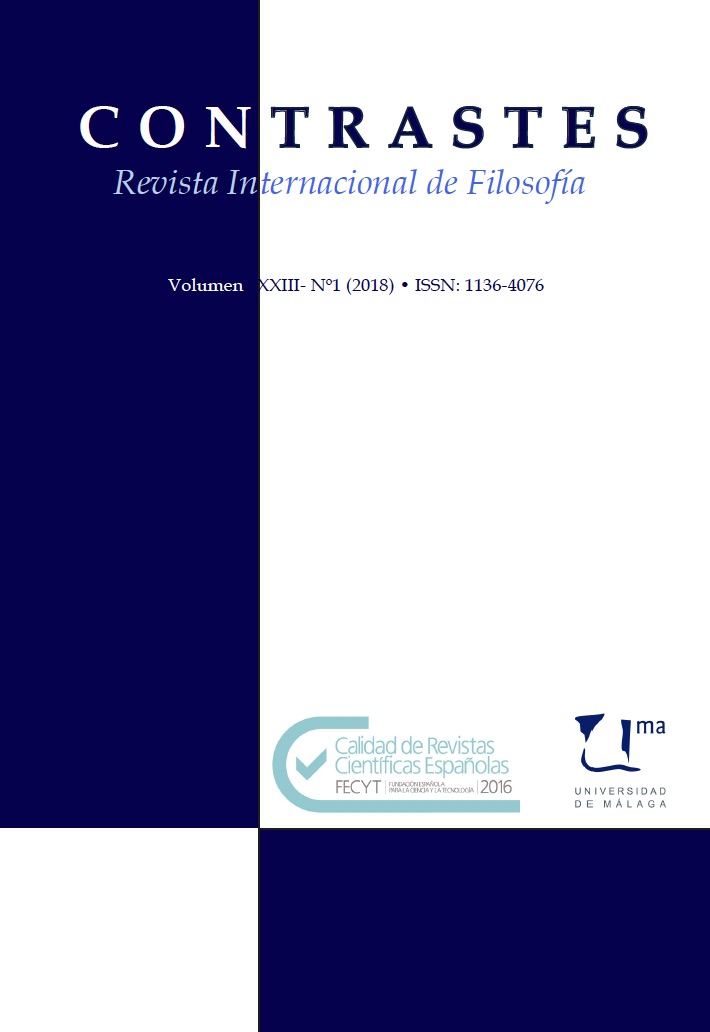The Scientific and Philosophical Justification of the Respect to Nature. Teilhard de Chardin, Arne Naess and the Pope Francisco
DOI:
https://doi.org/10.24310/Contrastescontrastes.v23i1.5465Keywords:
Biosphere, Noosphere, Hominization, Self-awareness, PsychismAbstract
Three models of sensitivity relating to Social Ecology are visible today in relation to nature. The first, the most atavistic, consists of the instinctive indifference. The second, something more elaborate, of utilitarian conservation. And the third, the most consistent, of essential respect for her. And there, in the vertex of the thinking human hierarchy: isolated, a few, romantic and illuminated we find several of characters that try, tiresomely, to expand a “strange” message in between a tangled, present techno science; the committed environmentalism. Its imperative is unappealable: we are the only living being in the world gifted with sufficient self-awareness and, for that reason, we have required responsibility. Above all, in the case that there could exist sufficient arguments that link our own lineage with the rest of the living beings on this Earth. And that’s the objective of this article. Teilhard de Chardin, Arne Naess, and the Pope Francisco are the three best examples that have contributed to the scientific and philosophical justification of the respect owed to Nature. In them, we focus our analysis.
Downloads
Metrics
Publication Facts
Reviewer profiles N/A
Author statements
Indexed in
-
—
- Academic society
- N/A
- Publisher
- Universidad de Málaga
Downloads
Published
How to Cite
Issue
Section
License
This journal provides immediate free access to its content under the principle of making research freely available to the public. All content published in Contrastes. Revista Internacional de Filosofía, are subject to the Creative Commons Attribution-NonCommercial-ShareAlike 4.0 license whose full text can be found at <http://creativecommons.org/licenses/by-nc-sa/4.0>
It is the responsibility of the authors to obtain the necessary permissions of the images that are subject to copyright.
Authors whose contributions are accepted for publication in this journal will retain the non-exclusive right to use their contributions for academic, research and educational purposes, including self-archiving or repository in open access repositories of any kind.
The electronic edition of this magazine is edited by the Editorial Service of the University of Malaga (Uma Editorial), being necessary to cite the origin in any partial or total reproduction.










5.png)
